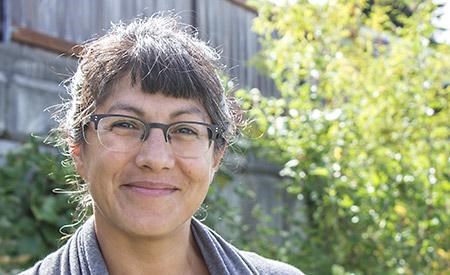In a world where natural resources are stretched to the limit, community and not growing the economy should be the priority—this is a local filmmaker’s message.
Claudia Medina was in Vancouver to teach fellow filmmaker David Lavallee, about the concept of economic degrowth, a movement based on ecological economics and anti-consumerist and anti-capitalist ideas.
“Degrowth, is the idea of living within limits,” said Medina, who explored these ideas with her 2010 film, Life After Growth: Economics for Everyone. “It’s hard to deny that the way we have been living … is having impacts, not just on an ecological level but on a social level.”
“Right now if you waste, if you throw stuff out and keep buying new things everyday you are a great economic citizen,” said Medina, explaining how Canada currently gauges economic health through Gross Domestic Product or GDP, a measurement which sees anything that pushes money through the system, such as waste or war, as good for the economy. “We are hitting the limits of our growth, but ideologically and economically we are not understanding the relationship,”
Medina shared her thoughts on degrowth with Lavallee for his upcoming documentary, To the Ends of the Earth, which explores the link between the use of energy obtained from increasingly challenging and ecologically challenging locations, such as the high Arctic, and the increasing need to discover viable economic models not based on resource extraction.
Along with Medina, Lavallee’s documentary also includes interviews with Naomi Klein, a social activist and author known for her analysis and criticism of capitalism, as well as Green Party candidate Lynne Quarmby, a university professor arrested on Burnaby Mountain for protesting the Trans Mountain pipeline.
“It’s a constant struggle because, as the economy becomes more precarious, people become more stressed out and worried about what’s going to happen,” said Medina.
She added that she has drawn on her experiences in Powell River to get a sense of what degrowth looks like in what was formerly a town dominated by a single industry, the pulp and paper mill.
While people seemed happy when the mill was at its height and had jobs, cars and boats, said Medina, the money masked social problems, and there was less community spirit.
“Degrowth, in a sense, is reconnection…between the individual and his or her community,” she said, pointing out how the development of a sharing economy and sustainability projects have drawn Powell River together.
According to Medina, who has worked to implement some of the ideas behind a degrowth economy as part of the mayor’s task force on economic revitalization in 2013, a economy based on sustainability rather than consumption provides a way of life that is more beneficial to building community.
“I was amazed that I could actually debate the pros and cons of economic growth at the mayor’s economic committee,” said Medina, who is currently working on a film that looks at what is fundamental to a good quality of life. “But that is the beauty of a small town—there is more of an openness to understanding that there needs to be a diverse economy.”
Lavallee, whose film investigates how society will be forced away from boom and bust economies when fossil fuels run out, said he wanted to learn from Medina what a degrowth economy, or an economy based on limited consumption would look like.
“I always get questions about what alternatives to capitalism are going to look like,” said Lavallee. “People want the sense that there is something else we can move towards that is at least as good or better.”
For more information on degrowth readers can see Medina’s short film at vimeo.com/10871269.



